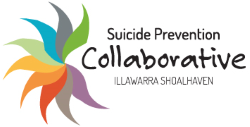Understanding and responding to the life events or situations that add to risk of suicide is an increasingly important part of suicide prevention.
Suicide is complex and there’s rarely a single cause to a person’s crisis. Australian data tells us that at least a third of people who die by suicide don’t have a diagnosis of a mental disorder – other factors are contributing to their suicidal distress.
We know that these factors contributing to distress can be simultaneous and messy, and not singular and tidy. We also know that life stressors such as financial distress can potentially increase an individual’s risk to suicide.
Lately you don’t need to look far to find stories of financial stress being felt across the community. In May 2023, the Australian Bureau of Statistics reported that personal financial stressors (such as mortgage increases, increase in price of daily necessities like groceries and amenities), have grown faster and higher than the current rate of inflation.
Financial stress can take a huge toll on personal mental and emotional wellbeing. The flow-on effects of financial stress can show up in many areas of our lives and may lead to increased pressures on relationships, decreased productivity at work and overall decline in quality of life.
Lifeline outlines some of the things to watch out for which may suggest financial stress is becoming a problem for you or someone you know:
- you feel overwhelmed by your financial situation and worry about it constantly
- your self-esteem is lowered, or you withdraw from family and friends
- your financial situation has led to feelings of hopelessness and worthlessness
- you’ve started using unhealthy coping strategies such as drinking or taking other substances
- you’re avoiding your financial problems, for example, never checking your bank balance.
If you are experiencing financial stress, you may notice yourself consumed by thoughts about your financial situation. You may find it harder than usual to be happy and optimistic, you may experience physical symptoms, or experience feelings of shame, guilt and overwhelm.
It’s important to know that money problems can happen to anyone, and the current economic climate is increasing financial pressures on many people. Help is always available.
The National Debt Helpline is a free and confidential hotline available Monday to Friday 9.30am to 4.30pm on 1800 007 007 and is a great place for people to start when exploring ways to get their financial situation back on track. Aboriginal and Torres Strait Islander people can call the Mob Strong Debt Helpline on 1800 808 488.
Financial counselling services are funded nationally by the government which means you can access support at no cost. Financial counsellors can help assess your situation and provide options on how to move forward. You can search for a Financial counsellor close to you on the National Debt Helpline website.
If financial distress is coming from difficulty paying a fine, setting up a payment plan isn’t your only option. Other established routes, like a Work and Development Order, supports a variety of activities that reduce the amount to pay on your fine. These include medical or mental health treatment; financial or other counselling, alcohol and drug treatment, etc. This a great option for those who have other factors contributing to their financial distress.
Financial crisis can also develop from the coping mechanisms we may reach for when there are other factors contributing to distress. Some addictions, like gambling, can develop when an individual is trying to soothe themselves or trying to find a sense of control.
There can be a lot of misunderstandings about financial addictions like gambling but support is available from people who understand. A good place to start is the Gambling helpline 1800 858 858.
Coming back to the complexity of suicide. Just because someone is experiencing financial stress, it doesn’t mean that they are also suicidal. The only way to know is to start a conversation and listen with patience and compassion.
To build knowledge and confidence to have conversations about suicide, Illawarra residents can sign up to complete a one-hour suicide awareness online training course for free via the Collaborative’s website.
If you are experiencing financial stress or are feeling overwhelmed, isolated or distressed by life events or situations, there is no shame is reaching out for help.
Lifeline is available 24/7 on 13 11 14 and 13YARN is available 24/7 on 13 92 76.
Thank you to the Illawarra Mercury for inviting Jo Riley, Executive Member of the Illawarra Shoalhaven Suicide Prevention Collaborative to share her thoughts for this opinion piece.
